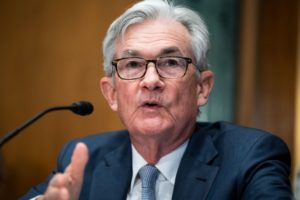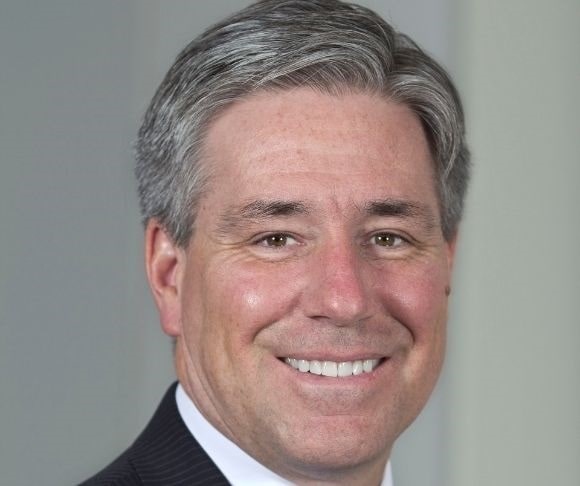Editor’s note: In the last part of an extensive interview with Daniel Mitchell, Andrew Moran finds out from the renowned economist the secret to bringing down the deficit. Part 1 disclosed why trillions of dollars of deficit spending will not bring down inflation.
For years, Republicans and Democrats have abandoned any semblance of fiscal values out of political expediency. When the Democrats control the keys to the White House, the GOP will whisper sweet nothings into the ears of Americans who possess an accountant’s soul, spotlighting indignation over fiscal recklessness. But once the elephants are able to stampede their way into 1600 Pennsylvania Avenue, all the promises of being fiscally conservative and responsible are hurled into the ether. With America’s financial condition deteriorating, is there any serious person on either side of the aisle taking the national debt and federal deficit seriously? If so, does it really matter at this point? Liberty Nation asked those questions of Daniel J. Mitchell, an economist and author, in an in-depth interview.
Any Accountants Running for President in 2024?
[articlepoll align=”right”]Be it a Republican or a Democrat, it is more of the same in the White House and in Congress, averred Mitchell. Everyone has been a big spender, from George W. Bush to Barack Obama, from Donald Trump to Joe Biden.
Right now, heading into the 2022 mid-term election and the 2024 presidential contest, the country needs someone to begin pushing the spending trend line down, ensuring that the private sector is growing faster than the government, Mitchell argued.
“That’s what I call my golden rule of fiscal policy,” Mitchell told LN. “If you somehow can achieve that by cutting out some of the government waste, by reforming the entitlements, then sooner or later, if you flip those lines the right way, so the private economy’s growing faster than the government’s budget … that gets you to a balanced budget.”
Some Republicans champion balanced budgets, but Mitchell’s primary focus is shrinking the size of the government and leaving more resources in the private economy rather than the present-day system of bureaucrats and politicians allocating taxpayer dollars in some cause du jour.
 In the short-term, Mitchell is optimistic that the Republicans could implement a modicum of fiscal discipline should they regain the House in November. Since they are likely to be partisan, they will fight back against President Joe Biden’s agenda and stop his “Build Back Better plan of class warfare taxation and a bigger welfare state.” At the same time, if the GOP wins back the White House in 2024, Mitchell wonders if the party will attain a Ronald Reagan-type candidate or another Richard Nixon, Bob Dole, Mitt Romney, and Donald Trump.
In the short-term, Mitchell is optimistic that the Republicans could implement a modicum of fiscal discipline should they regain the House in November. Since they are likely to be partisan, they will fight back against President Joe Biden’s agenda and stop his “Build Back Better plan of class warfare taxation and a bigger welfare state.” At the same time, if the GOP wins back the White House in 2024, Mitchell wonders if the party will attain a Ronald Reagan-type candidate or another Richard Nixon, Bob Dole, Mitt Romney, and Donald Trump.
“We need a Republican who’ll actually take seriously the notion that your job is to advocate for the private sector, not to advocate for the different interest groups,” he said. “Because what we have right now is Democrats lavishing money on their favorite interest groups, and Republicans, unfortunately, tending to lavish money on their favorite interest groups. That’s a recipe, again, that simply determines how fast we become Greece.”
And the United States cannot be bailed out like Greece because the nation is the “800-pound gorilla in the world economy.”
Fed Up!
The Federal Reserve raised interest rates for the first time in three years following the Federal Open Market Committee (FOMC) policy meeting on March 16. The US central bank pulled the trigger on a 25-basis-point rate hike, lifting the benchmark target rate to 0.25%-0.5% and planning for six more interest rate movements this year. But while monetary policy remains highly accommodative, the slight bump in rates could impact consumer, business, and government debt. Today, Washington spends more than $300 billion a year on interest payments.

Federal Reserve Chairman Jerome Powell (Tom Williams/CQ-Roll Call, Inc via Getty Images)
So, could higher rates further hemorrhage the federal government? Because rates remain historically low, it might not impact Washington’s borrowing capabilities in any meaningful way for now, Mitchell explained. For example, the last time inflation was running this hot, the fed funds rate was around 12%.
He does think interest rates on government bonds will start to creep up because investors will realize that they are suffering capital losses by lending the government money. Indeed, if inflation is at 7.9% and a Treasury yield is paying 2%, the bondholder is losing a significant amount of money.
Meanwhile, Mitchell contended that money supply expansion over the last two years that triggered inflation premium “will cause interest rates on government bonds to go up.” Investors are still attracted to the United States because it is the safe haven of the world.
“I’m not patting us on the back,” Mitchell noted. “It’s just other countries mismanage things even worse than we do. There’s always this huge amount of foreign capital coming into the US economy and people generally see holding US government bonds as sort of a safe haven.”
Put simply, it is the incompetence of others that could support America’s appeal in capital markets.
End of series.
~ Read more from Andrew Moran.




